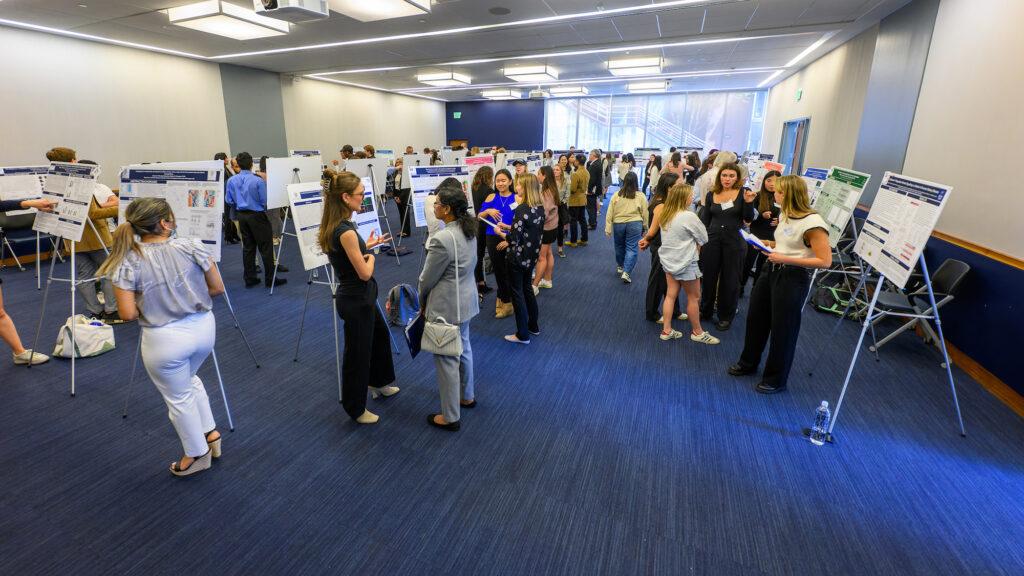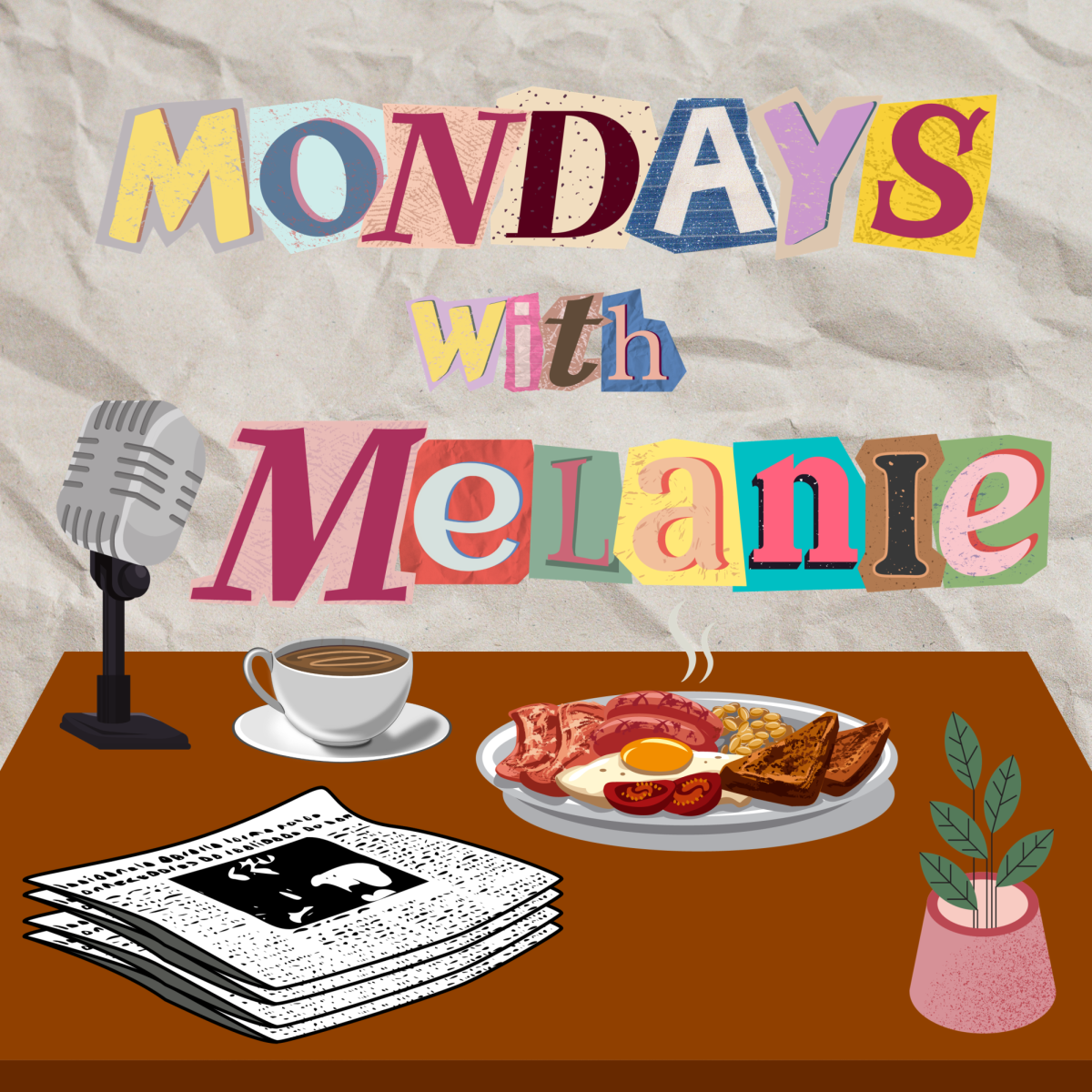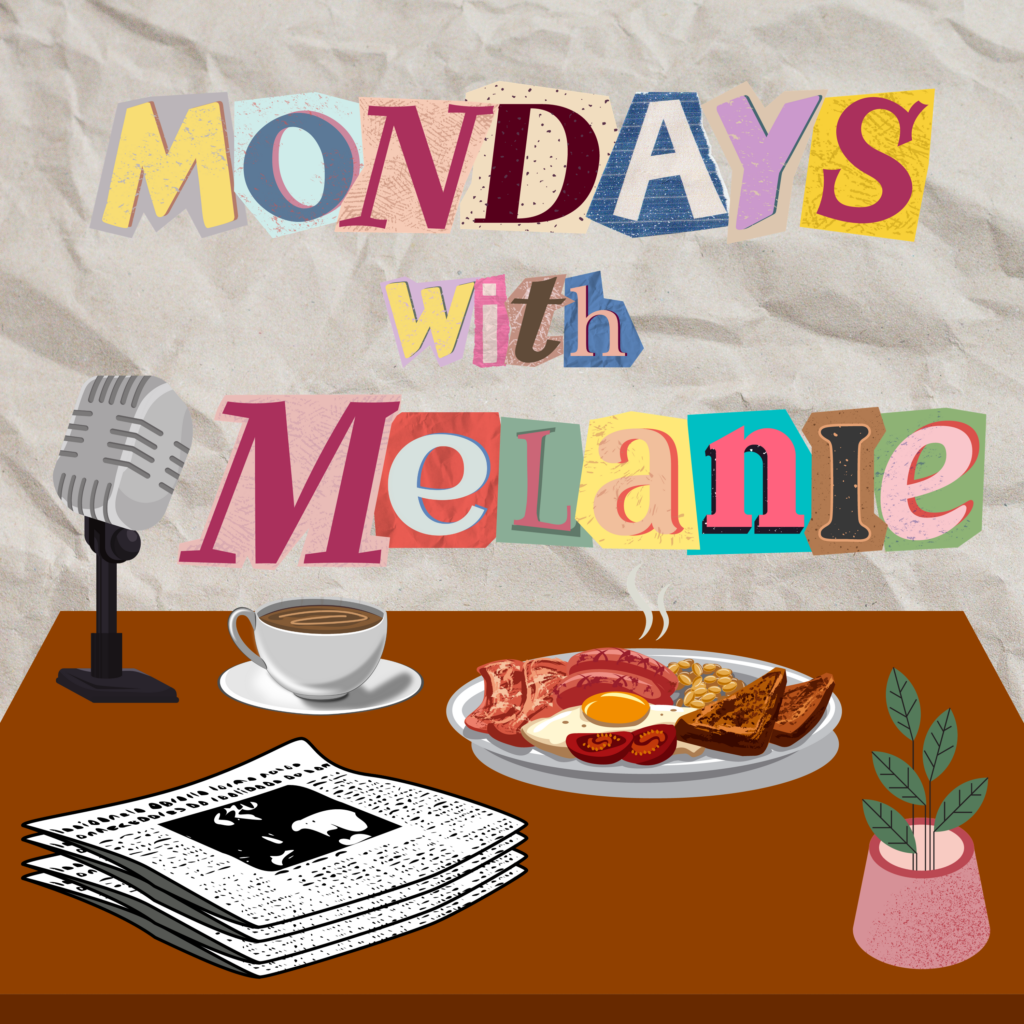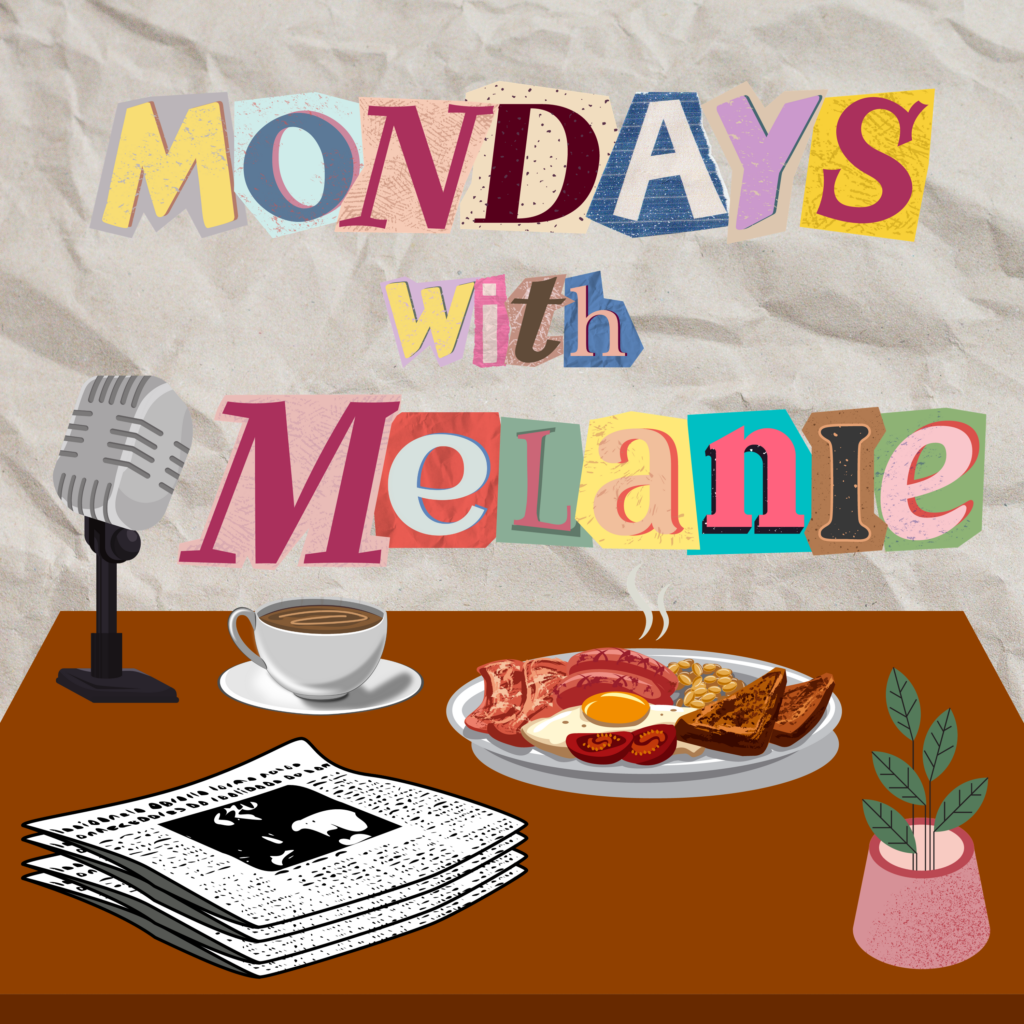This week on “The Community Corner,” The Hoya had a chance to sit down with Georgetown University professor of linguistics Deborah Tannen to discuss communication in the workplace and, of all things, Slack.
Slack, a digital business messaging platform that launched in 2013, has become an essential communication application utilized by corporate leaders and Georgetown students alike. Why make the switch to the colorful app? That’s what multimedia staffer Mia Rasamny (COL ’24) set out to find out.
Listen in to hear from Tannen and student club leaders about what Slack offers their organizations, especially female members.
Podcast Transcript:
GB: From The Hoya, I’m Grace Buono (COL ’23), this is “The Community Corner,” a weekly show about the lives and stories of Hoyas near and far from the Hilltop. This week, multimedia staffer Mia Rasamny (COL ’24) was on a mission to learn more about everything from linguistics to Slack, a communication and messaging platform used by businesses and student groups alike. Here’s Rasamny with more.
MR: Have you ever felt like you’ve been lost in translation when communicating with others? Today we have hundreds of ways to communicate, but evidently, some ways are more effective than others, particularly when in a professional environment. This week I sat down with one of Georgetown’s linguistic professors and New York Times bestselling author Dr. Deborah Tannen. Dr. Tannen focuses on how the language of everyday conversations affects relationships.
DT: We all have different conversational styles. And if you talk to someone whose style is similar to yours, you can assume that they mean what you would mean if you said the same thing and the same content. But if you talk to someone whose conversational style is different, that may lead you to misunderstand what they mean and they might misunderstand what you mean. And more importantly, you evaluate each other inaccurately.
MR: Throughout this conversation, Dr. Tannen and I discussed the role of genders in communication, particularly in the workplace. One of Dr. Tannen’s books, “That’s Not What I Meant,” was written based on a course that she teaches here at Georgetown, “Cross-Cultural Communication.” Additionally, she wrote a book about women in the workplace called “Talking 9 to 5,” which is the one we will be discussing today.
DT: In positions of authority face a double bind. Now, that’s different from a double standard — you’re expected to fulfill the expectations of a good woman. You’re expected to fulfill the expectations of a good leader, or manager, but anything you do to fulfill one set of expectations actually violates the other.
MR: There has been a significant improvement regarding women in the workplace, in part due to the increase in more inclusive methods of communication, one of which many of us are probably familiar with, Slack. Slack is a more organized mode of communication and increases productivity through organized spaces known as channels. Channels provide teams with a shared view into the work being done as channel members work in sync and can stay up to date on all the work being done within a group or company. Many clubs at Georgetown utilize Slack, in addition to employees in larger companies such as Target, Uber and Lyft. I first discovered the benefits of slack with the chair of the International Relations Club here at Georgetown, who is a junior in the School of Foreign Service, Emily Hardy (SFS ’23).
EH: We had the Slack versus iMessage debate two years ago, so when I was a sophomore on the board. It was whether or not we wanted to make the switch from a traditional, like, iMessage group chat to Slack. It took up a shocking amount of time, to say the least. What we did decide though in the end was that Slack made it much easier for, like, not exterior members but like members of leadership who aren’t necessarily just exclusively on the board. So tangential leadership is the wrong word. But for all layers and all levels of leadership to be integrated into one workspace is why we eventually went with Slack over, like, iMessage or GroupMe. It’s also just so much more organized, I found, and it functions as — it functions like a real enabler of communication.
MR: In addition to my conversation with Hardy, I wanted to hear about the role of Slack in other student organizations. I therefore reached out to the director of Georgetown Student Capital, Phoebe Martin (MSB ’23), who is a sophomore in the McDonough School of Business.
PM: So we started using Slack this fall after we recruited our first analyst class because we needed a way to communicate with everyone, sort of in a more professional setting as well. What’s nice about Slack is that everyone on a general group chat is treated equally. We all have the same access on a general chat. Another thing to note, obviously sometimes people might have separate conversations about recruiting events — we’re all sort of in different email chains and have different connections and get sent different opportunities, and so it’s really important to me as the director of GC that we put all of those recruitment events in the Slack. I think from that perspective it’s just everyone’s on an equal playing field in terms of recruiting. You don’t have people who are talking about recruiting in separate forums. It’s all in that one place just making sure everyone has access to the same information.
MR: Dr. Tannon adds to the conversation regarding the benefits of Slack, particularly in the ways it empowers women in the workplace.
DT: People tend to look at women for our appearance, more than anything we’re saying. I remember when I would be on television when you just didn’t understand what was getting a lot of attention was, so that’s freeing right there in face-to-face meetings, and so that’s, so that’s an advantage. You don’t have to worry about interrupting somebody or getting, you know, getting the attention. In a workplace, important stuff is being talked about. So if it’s being talked about on Slack, you hear about it and can join in if you want.
MR: Slack can be freeing for women as it empowers communication in the workplace. Dr. Tannen mentions how women face backlash for being assertive at work. Yet with applications such as Slack, the ways women act are no longer criticized in the ways they used to be, as the only thing that matters is the sentences they type into the app. Slack allows women to worry less about how they are coming across at work.
EH: I think the biggest element and the biggest barriers that we find are relatively institutional. So for example, if informal or, like, secret methods of communication are entrenched, so private group chats, private email chains, you know, private GroupMes, things where it’s impossible for even leadership to know the kinds of communication that’s occurring within an organization, that it becomes far easier to breed exclusivity. However, when you have something like Slack, where I as chair can see all of the channels that are available in the GIRC/GIRA sub-board and within, like, the GIRC/GIRA chats, I have the ability to know that there is not that kind of exclusivity or under the table that is occurring about work opportunities or about IRC opportunities. So even if there are personal chats beyond the IRC, communication is not happening about IRC events with big numbers of people if it’s not happening on Slack. The institution of formalizing communication and centralizing communication is the component that enables empowerment.
PM: I’ll be completely frank, I’ve never really thought about how my gender might affect my messaging, but it might be easier for girls to approach me and ask me for my contact information and message me through other ways of communicating because I would maybe be seen more as an older sister or something like that. It’s sometimes easier to speak with someone who you feel like is more similar to you. So I think what’s nice about Slack is that no one has to ask for my contact information ahead of time. They can just private message me right away. There’s something about Slack that feels very professional, feels very corporate, which is great from the sense that we want to give our students the opportunities to use Slack because this is a software they might be using in the future.
MR: While Slack has numerous benefits, Dr. Tannen shared a story with me that shows us that regardless of Slack, there’s so much progress to be made regarding gender equality in the workplace, even digitally through onscreen communication.
DT: I was interviewing her for a book on another topic. She had been working just for a few years out of college at a company and she was assigned an intern to work with her. And after a few months, she thought things were going pretty well. They had one of these conversations that you have with people after you just getting to know them a little bit. “What did you think of me when you — when we first met?” And this young man, the intern, said, “I thought you were a bitch.” And she was shocked and asked, “Why?” And he said, “Because your emails, they just get right to the point, you know, no caps, no exclamation points, no emojis.” And that is an absolute nonverbal parallel to the double bind that if women don’t talk in ways that you expect of a of a woman, they just talk like a leader — you know, get right to the point, talk about what you’re good at, be assertive — then you’re going to be seen as not a good woman.
MR: Dr. Tannen ends our conversation by offering advice in regards to communication in the workplace and the ways in which individuals can increase their confidence when communicating in a professional environment.
DB: Advice I would give across the board is: Be attuned to these different ways of speaking and observe what seems to be working well, what seems not to be working well. If you are finding you’re not having the effect you want, try doing something different. And it could be ways of speaking, you know, it could be more emojis or fewer emojis. And it’s always a good idea to talk to people, ask people you trust. How am I coming across? Is there anything you think I’m doing that’s not helping me that I maybe would do well to change?
GB: This podcast was recorded and edited by Mia Rasamny and produced by Grace Buono. Special thanks to Deborah Tannen, Emily Hardy and Phoebe Martin for taking the time to speak with The Hoya. That’s all we have for now, tune in for more soon.



















